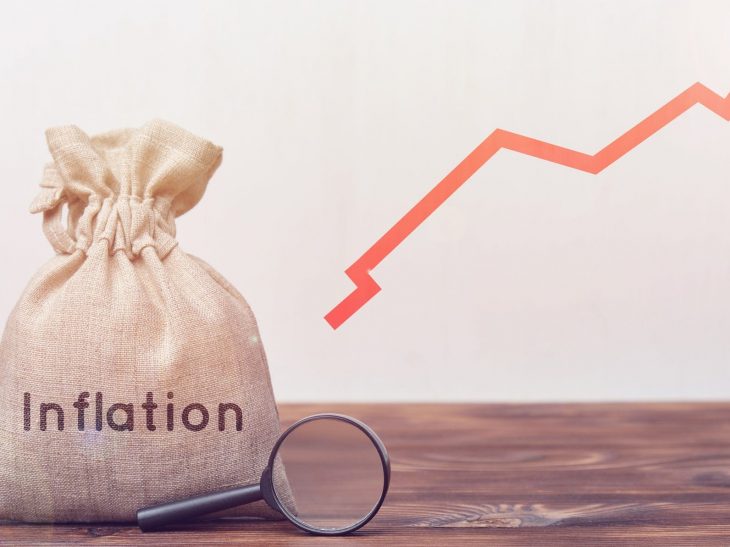Güldem Atabay: Inflation- the good, bad, ugly
Güldem Atabay
•
September 3, 2024 4:06 pm
The annual inflation rate has dropped from 62% to 52%, largely due to a significant decrease in monthly CPI inflation, which fell to 2.47% in August 2024 compared to 9.1% in August of the previous year. This phenomenon is known as the base effect.
The base effect occurs because each month's inflation rate since June 2024 has been lower than the corresponding month in 2023. As a result, the 12-month cumulative inflation rate is decreasing, or more precisely, the rate of inflation growth is slowing down. Annual CPI inflation, which peaked at 75.45% in May 2024, is now on a downward trend due to this base effect. As long as monthly inflation remains below the levels of the previous year, the annual inflation rate will continue to decelerate.
The base effect is expected to remain strong through July to September 2024 and is likely to persist until October 2025, though its impact will gradually lessen over time.
For instance, if inflation for September 2024 is reported at 2.5%—down from 4.75% in September 2023—annual inflation would decline from 52% to 48.7%. However, it's important to note that despite this reduction in the annual rate, average monthly prices would still be increasing.
Assessing the Loss of Momentum in Inflation and Future Projections
It’s possible to estimate where the deceleration in inflation might plateau. According to the Central Bank of Turkey’s (CBRT) projections, which factor in domestic and external demand, the value of the Turkish lira (TL), inflation expectations, pricing behavior, and production rigidities, inflation is expected to reach 42% by the end of 2024, with a midpoint projection of 38% as the most likely outcome. By the end of 2025, inflation is projected to decrease further to 21%, with a midpoint of 14%.
For the official 2024 inflation target of 38% to be met, monthly inflation would need to average no more than 1.13% during the September-December period. To hit the higher estimate of 42%, monthly inflation would have to stay below 1.9% over the same period.
So, are these targets achievable? To gauge this, let’s delve into the August inflation figures.
Excluding the shock in August 2024, this month recorded the highest August inflation in 20 years at 2.47%. When seasonally adjusted, headline inflation rose to 3.2%. Historically, August has been a low-inflation month in Turkey, particularly since 2018, following the economic challenges posed by the 2018 currency crisis, often associated with the "Rahip Brunson" incident, which was a result of unsustainable current account deficits driven by flawed growth policies.
Despite the CBRT's targets, the gap between official expectations and actual inflation remains wide. Seasonally adjusted core inflation has exceeded 3%, far from the central bank’s aim of converging to 1.5% per month.
The real appreciation of the TL and improved agricultural production have contributed to a slowdown in inflationary pressures. Since the start of 2024, the TL has depreciated by 15% in basket terms, while cumulative CPI inflation has reached 32% over the same period. On a 12-month basis, the TL has depreciated by 29%, with annual inflation at 52%. In addition to interest rate hikes, the CBRT has used the TL's real appreciation as a tool to suppress goods prices. or
Finstance, fresh fruit and vegetable prices fell by 10% month-on-month in August during the peak production period. However, despite these supportive factors, the monthly increase in goods prices remains at 1.5%, aligning with the CBRT’s target. Nevertheless, the pace of TL depreciation is expected to accelerate to 1.5-2.5% per month in the final quarter of 2024, which, combined with the end of the sharp fall in fruit and vegetable prices, could add upward pressure on inflation.
Finance Minister Mehmet Şimşek's reference to a 1.1% decline in the "food and non-alcoholic beverages" category in August is largely due to seasonal factors. While unprocessed food prices dropped by 4.89%, processed food inflation still rose by 2.37% month-on-month—an area of concern that Simsek did not emphasize. Processed food inflation remains above target and continues to pose a significant challenge.
Services inflation is particularly troubling, showing no signs of aligning with expectations. The monthly price increase in services surged to 4.6%. Rent prices soared by 7.4% month-on-month and by 121% year-on-year. Education costs are also problematic, with an 11% increase in August alone, pushing the annual rate to 121%.
In conclusion, while there are factors that could help temper inflation, such as the real appreciation of the TL and a good agricultural season, significant challenges remain. The persistent inflation in services and processed foods, coupled with potential currency depreciation in the latter part of the year, suggest that meeting the CBRT’s targets for 2024 will be difficult, though not impossible. The base effect and other transitory factors will continue to play a crucial role in shaping the inflation outlook.
Conclusion: Official targets are unrealistic, more than monetary policy is needed, MTP is the first test
Given the current data, it appears that CPI inflation may only decrease to around 43-45% by the end of 2024 and to 28-30% by the end of 2025. Under these circumstances, an interest rate cut is unlikely before the end of 2024. However, if the Turkish economy—which grew by a mere 0.1% in the second quarter compared to the previous quarter—returns to contraction in the third quarter, the Central Bank of Turkey (CBRT) might consider cutting rates as early as December.
While much of 2024 is now behind us, the focus must shift to achieving the 2025 targets, which are crucial for setting a long-term inflation trajectory. The CBRT’s end-2025 inflation target of 14%, with an upper band of 21%, seems increasingly unrealistic and unattainable under the current conditions. Without the necessary policy support to bolster monetary measures against inflation, meeting these targets would likely require a significant contraction in the economy.
The current government appears to lack the capacity to reduce inflation while safeguarding the real sector and protecting low-income households. The disconnect between fiscal policy and the more rational approach to monetary policy will be critical in determining Turkey's medium- and long-term inflation outcomes.
The upcoming revisions to the Medium Term Plan, expected to be announced on Thursday, September 5, will provide more clarity on this issue. These adjustments will be crucial in understanding how fiscal policy will align with the changing monetary policy and the broader economic strategy for combating inflation.
 enflasyon
enflasyon





